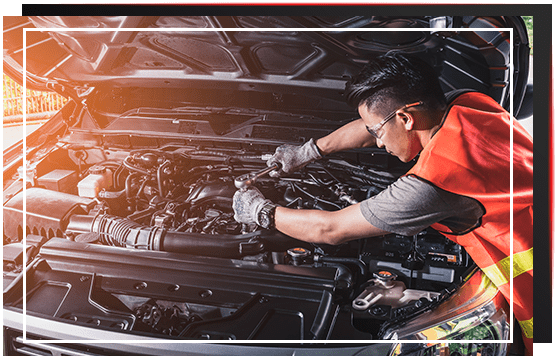COST SAVING TIPS

maximize your money
best cost saving tips for car owners
It’s no secret that one of the best cost saving tips for car owners is that a well-kept car is safer, more dependable, and can even help you save some money at the petrol station. Drivers should make plans in advance to give themselves enough time to do necessary maintenance on their own or at a nearby service facility.
Car Care Council offers three suggestions
for a traveler's 10-minute pre- trip checklist:
Check all fluids
Engine oil, power steering, braking, and transmission fluids, as well as windshield washer solvent and antifreeze/coolant, are among the fluids that need to be checked.
Check all hoses and belts
The electrical system, air conditioning, power steering, and cooling system can all be impacted by a belt failure. It's possible that cooling system hoses are internally deteriorating, thus worn-out hoses and clamps may need to be replaced.
Check the tires
Check tire inflation and inspect the tread for uneven wear, indicating the need for wheel alignment. Also look for bulges and bald spots.
Follow these cost saving tips to maximize fuel efficiency of your vehicle:
Vehicle gas caps
Under inflated tires
Worn spark plugs
Dirty air filters
Don't drive aggresively
Avoid excessive idling
Drive the speed limit
Vehicle gas caps
With 147 million gallons of gas vaporizing each year due to gas caps that are either damaged, loose, or missing entirely from around 17% of the vehicles on the road.
Under inflated tires
It’s like having a parking brake on while tires aren’t properly filled. Per gallon, it may cost one or two miles.
Worn spark plugs
Four, six, or eight spark plugs can be found in a car, and each one can fire up to 3 million times every 1,000 miles, causing heat-induced electrical and chemical deterioration.
Dirty air filters
The ratio of gas to air is off in a “rich” mixture produced by an obstructed air filter. The engine loses power as a result of fuel wastage. An air filter replacement can increase gas mileage by up to 10%.
Don't drive aggresively
On the interstate, aggressive driving can reduce gas mileage by up to 33%, and on city streets, it can reduce it by 5%.
Avoid excessive idling
Getting no miles per gallon while idling. It only takes a minute or two for the car to warm up.
Drive the speed limit
At speeds more than 60 mph, gas mileage drops significantly. Every every mile over 60 costs an extra 10 cents per gallon. Utilize cruise control to improve fuel efficiency.

